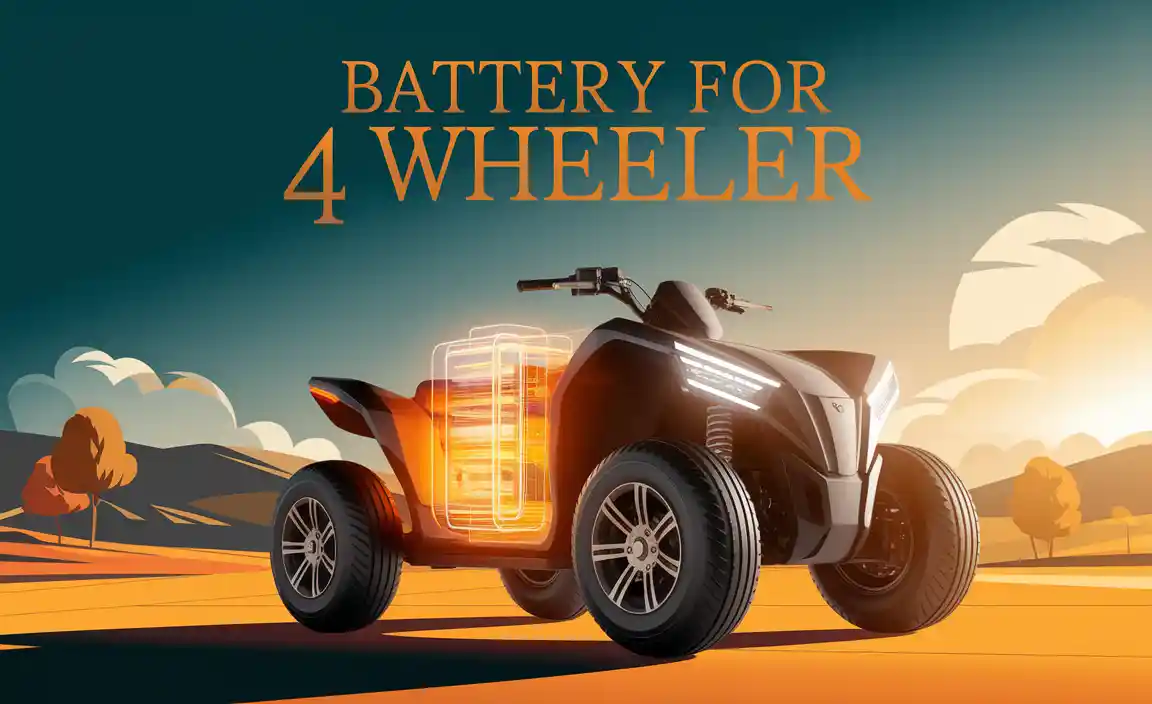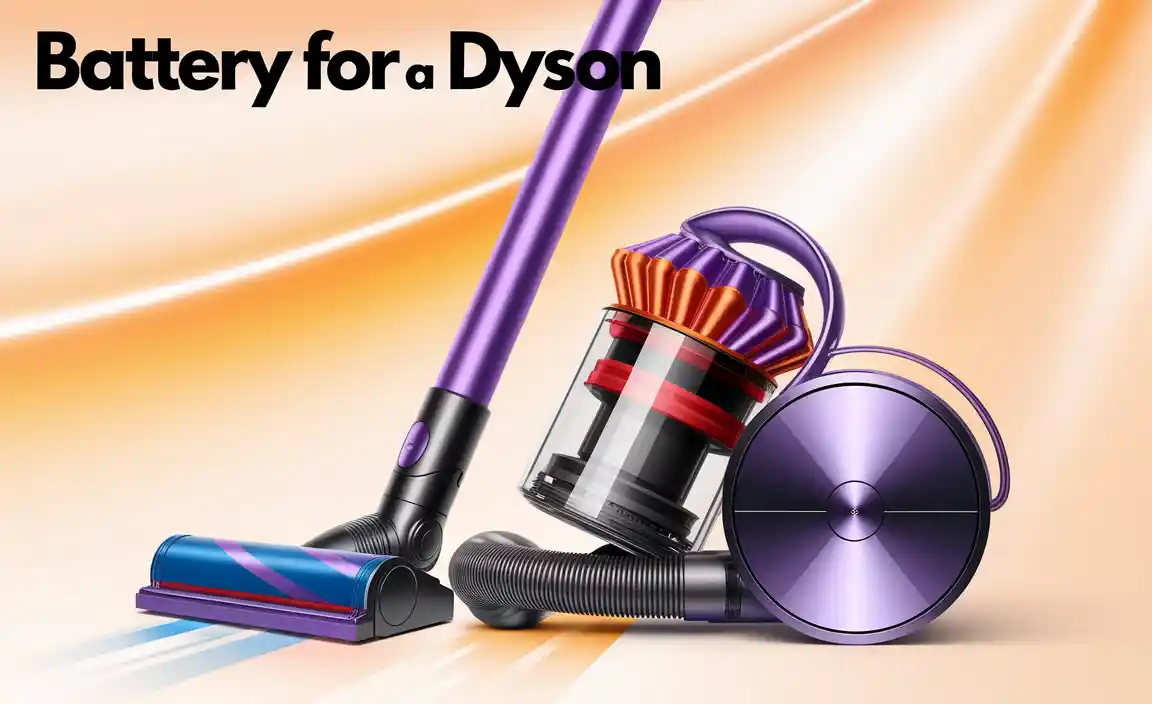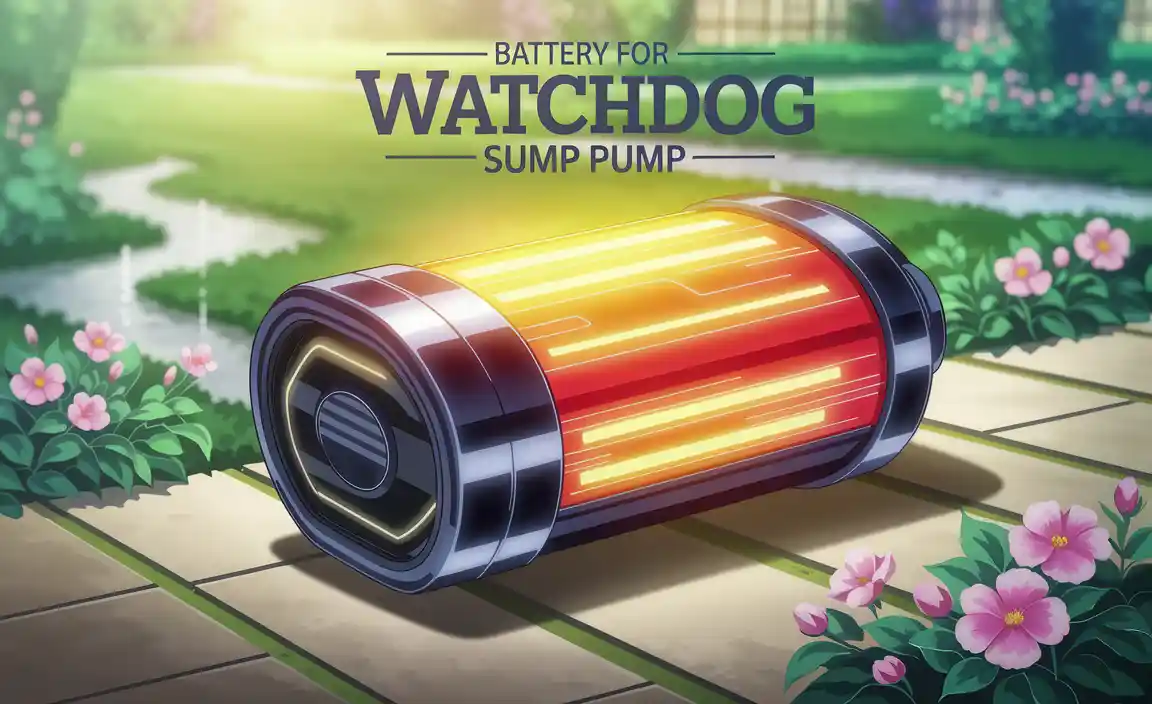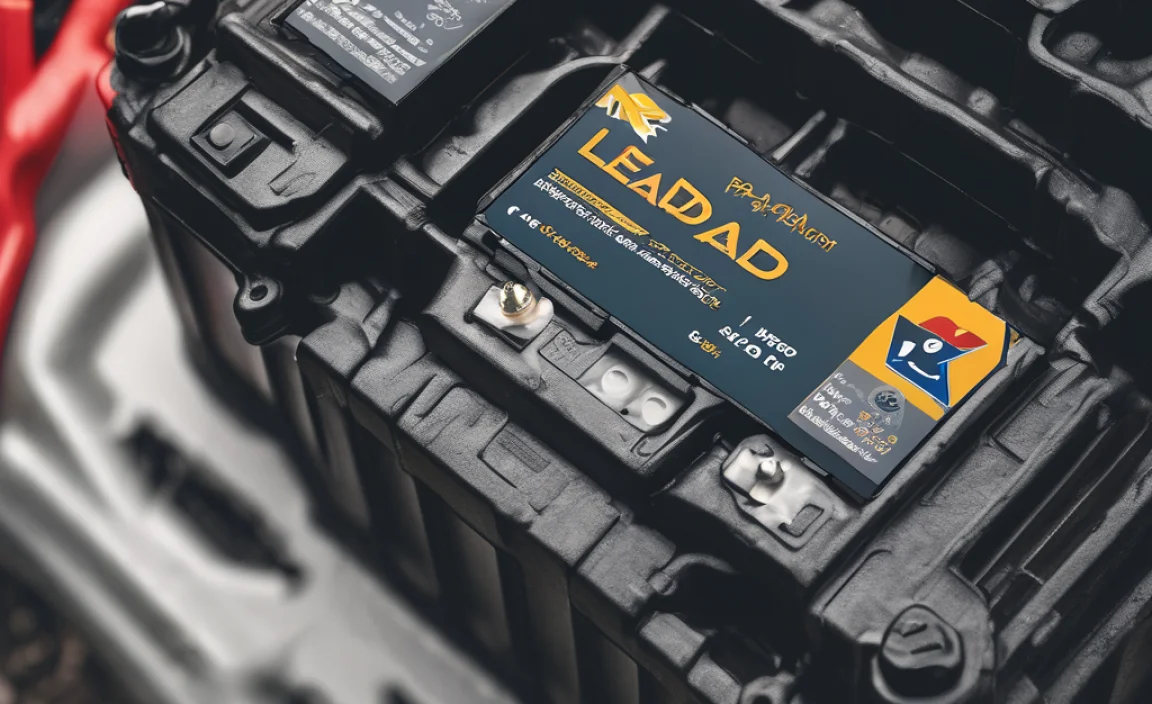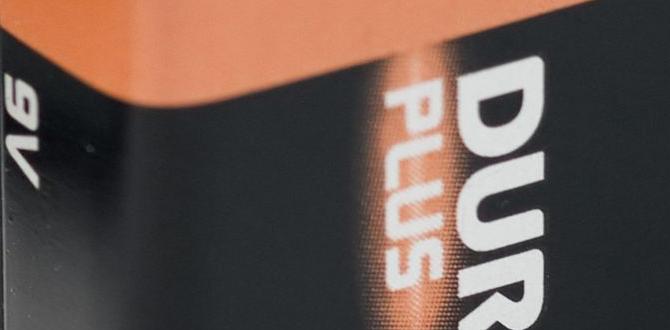Quick Summary: Yes, you can get money for old car batteries! Many auto parts stores, scrap yards, and recycling centers pay cash for them due to the valuable lead and plastic inside. It’s an easy way to earn a little extra cash while helping the environment. Just ensure it’s disconnected and handled safely.
Is your old car battery taking up space and gathering dust? You might be surprised to learn that this seemingly dead weight can actually be a source of cash. Many people don’t realize that old car batteries are valuable and can be sold for recycling. This guide is here to show you exactly how to turn that old battery into money, safely and easily.
We’ll walk you through where to sell them, what to expect, and how to prepare your battery. No confusing jargon, just simple steps to get you started. Let’s find out how you can get paid for your old car battery!
Old Car Batteries For Money: Your Guide to Cashing In
Your car battery is a powerhouse when it’s working, but what happens when it finally gives up the ghost? Most of us just think about getting a new one and hauling the old one away. But that old battery is actually filled with valuable materials, mainly lead and acid, which can be recycled and reused. Because of this, places that handle car batteries are often willing to pay you for them.
Getting cash for your old car battery is a win-win. You get a little extra money in your pocket, and you help the environment by ensuring the battery is recycled properly. Improperly disposed of car batteries can be harmful to the earth, so recycling is a much better choice. Let’s break down how you can make this happen.
Why Are Old Car Batteries Worth Money?
The core reason old car batteries have value is their primary component: lead. Lead is a heavy metal that is still very useful in manufacturing new batteries and other products. Recycling facilities process these old batteries to extract the lead, which can then be remelted and used again. This process saves energy and resources compared to mining new lead.
Here’s a quick look at what makes them valuable:
- Lead: This is the main component, making up a significant portion of the battery’s weight and value.
- Plastic Casing: The hard plastic housing can also be recycled and repurposed.
- Acid: While the sulfuric acid needs careful handling, it can also be neutralized and treated for reuse in various industrial applications.
The demand for recycled lead remains strong, which keeps the payout for old car batteries consistent. Think of it as a small bounty for returning a key resource back to the production cycle.
Where Can You Sell Your Old Car Battery?
You have several options for selling your old car battery. Each has its own advantages, so you can choose what works best for you.
1. Auto Parts Stores
Many major auto parts retailers offer a core charge when you buy a new battery. This means you pay a little extra upfront, which you get back when you return your old battery. If you’re just looking to dispose of an old battery without buying a new one, most of these stores will still buy it from you, or at least accept it for recycling and often give you a small amount.
Some popular chains that typically buy old batteries include:
- AutoZone
- Advance Auto Parts
- O’Reilly Auto Parts
- Pep Boys
It’s always a good idea to call your local store first to confirm their policy and how much they pay. Policies can sometimes vary slightly by location.
2. Local Scrap Yards and Metal Recyclers
Scrap metal yards are in the business of buying and processing recyclable metals, and car batteries are a prime item. They often offer competitive prices because they are set up for large-scale processing. You might find that they pay more per battery than retail stores, especially if you have several to sell.
When visiting a scrap yard:
- Check their prices: Prices can fluctuate based on the market value of lead.
- Ask about their process: Ensure they handle batteries safely and responsibly.
- Be prepared to transport: You’ll likely need to bring the battery to them.
A quick online search for “scrap metal recycling near me” or “car battery recycling” should bring up local options.
3. Battery Specialists and Recyclers
Some businesses specialize solely in battery sales and recycling. These places are experts in handling all types of batteries, including car batteries. They might offer the best prices because they are dedicated to the recycling process and have a direct line to manufacturers who use recycled lead.
4. Local Mechanics and Garages
Your friendly neighborhood mechanic might be interested in your old battery, especially if they regularly work on cars and might need used ones for testing or have established recycling partnerships. It’s worth asking them if they buy them or can point you in the right direction for a good price.
How Much Can You Expect to Get?
The amount of money you can get for an old car battery varies. It depends on several factors:
- The Current Market Price of Lead: This is the biggest influencer. When lead prices are high, you’ll get more money.
- The Battery’s Weight: Heavier batteries are generally worth more because they contain more lead. Standard car batteries typically weigh between 25 to 50 pounds.
- Where You Sell It: Scrap yards might offer more than retail stores, but this can vary.
- The Specific Buyer’s Policy: Each place sets its own rates.
As a general guideline, you can often expect anywhere from $5 to $20 per battery. Some places might offer slightly more depending on market conditions and the battery’s condition (though most care about the lead content, not whether it still holds a charge).
To give you an idea, here’s a sample of what prices might look like:
| Location Type | Potential Payout Range (per battery) | Notes |
|---|---|---|
| Auto Parts Store (without buying new) | $5 – $10 | May be lower if not purchasing a new battery |
| Scrap Yard / Metal Recycler | $8 – $20+ | Often offers better rates; depends on lead market |
| Battery Specialist | $7 – $18 | Competitive pricing due to specialization |
Always call ahead to get the most current pricing information from your chosen buyer.
Preparing Your Old Car Battery for Sale
Safety and proper preparation are key when handling an old car battery. These batteries contain corrosive acid and can still hold a residual charge, so it’s important to be careful.
Step-by-Step Preparation Guide:
-
Disconnect and Remove the Battery Safely
If the battery is still in your car, make sure the engine is off and cool. Always disconnect the negative terminal (black cable) first, then the positive terminal (red cable). This prevents accidental sparks. Use the correct size wrench. Once disconnected, unbolt any battery hold-down clamp and carefully lift the battery out. Batteries are heavy, so lift with your legs, not your back.
Safety Tip: Wear safety glasses and gloves. Car battery acid can cause severe burns and eye damage.
-
Inspect for Damage
Look for any cracks in the casing or leaking acid. If a battery is severely damaged or leaking, some recyclers might not accept it, or they may have special handling procedures. Be honest about the condition.
-
Clean Off Loose Debris
Wipe off any dirt, grease, or grime from the outside of the battery. This makes it easier to handle and more appealing to the buyer. You can use a damp cloth or an old brush.
-
Secure Terminals (Optional but Recommended)
To prevent accidental short circuits during transport, you can cover the battery terminals with a piece of thick plastic or rubber, or even tape them. This adds an extra layer of safety.
-
Transport Carefully
Place the battery in a sturdy container or bag (like a plastic crate or heavy-duty garbage bag) to prevent any leaks from damaging your vehicle. Position it upright and secure it so it doesn’t tip over during transit.
Most buyers are looking for standard lead-acid car batteries. If you have other types (like lithium-ion from newer EVs, though these are rare as “old” batteries), they may have different recycling processes and values.
Safety First: Handling Car Batteries
Car batteries contain sulfuric acid, which is a highly corrosive substance. They also contain lead, which is a toxic heavy metal. Handling them improperly can lead to serious injury or environmental damage. Always prioritize safety:
- Wear Protective Gear: Always wear safety glasses or goggles and chemical-resistant gloves (like nitrile or rubber).
- Work in a Well-Ventilated Area: Batteries can release flammable hydrogen gas, especially when charging or discharging. An open garage or outdoor space is best.
- Avoid Sparks and Flames: Keep open flames, sparks, and smoking away from car batteries.
- Lift Properly: Car batteries are heavy. Bend your knees and lift with your legs to avoid back strain.
- Handle with Care: Avoid dropping or puncturing the battery case.
- Know How to Handle Spills: If acid spills, neutralize it with a baking soda and water mixture before cleaning it up.
For more information on safe battery handling and recycling, resources like the Environmental Protection Agency (EPA) offer guidance.
Learn more about lead-acid battery recycling from the EPA.
Alternatives to Selling: Responsible Disposal
Even if you don’t make money from your old battery, it’s crucial to dispose of it responsibly. If you can’t find a buyer or the payout is very low, here are other options:
- Local Recycling Centers: Many municipal waste and recycling centers accept lead-acid batteries for free. Check your local government’s waste management website for details.
- Automotive Repair Shops: Most mechanics will take old batteries off your hands for proper recycling, even if they don’t offer cash.
- Community Recycling Events: Keep an eye out for local hazardous waste or electronics recycling events.
The most important thing is to ensure your old battery doesn’t end up in a landfill where it can leach harmful chemicals into the soil and groundwater.
Frequently Asked Questions (FAQs)
Q1: Can I get money for a dead car battery?
Yes, absolutely! Buyers are interested in the lead content, not whether the battery still holds a charge. A “dead” battery is still very salable for recycling.
Q2: How much is an old car battery worth per pound?
The price per pound fluctuates with the market value of lead. Typically, scrap yards might pay anywhere from $0.10 to $0.30 per pound for the lead content within the battery, but they often pay a flat rate per battery based on its weight.
Q3: Do I need to remove the acid from the battery?
No. Buyers accept the battery with the acid inside. In fact, attempting to remove it is dangerous and unnecessary for the recycling process.
Q4: What if my battery is cracked or leaking?
Some places will still accept cracked or leaking batteries, but they might offer a lower price or have specific handling requirements. It’s best to call ahead and explain the condition.
Q5: Can I sell an old battery if I bought a new one and paid a core charge?
When you buy a new battery, you usually pay a “core charge” which is refunded when you return your old battery. You generally can’t get additional money for it on top of the core charge refund. However, if you didn’t get a core charge, you can still sell it directly for cash.
Q6: How many batteries can I sell at once?
Most places will buy as many batteries as you can safely bring them. Scrap yards, in particular, are equipped to handle multiple batteries. Just ensure you have a safe way to transport them.
Q7: Are there special requirements for selling car batteries to recyclers?
The main requirements are that it must be a lead-acid car battery and not excessively damaged (like a crushed case or missing parts). Ensure the terminals are secured to prevent shorts during transport.
Conclusion
Turning your old car battery into cash is a straightforward and environmentally responsible act. By understanding where to take it and how to prepare it safely, you can easily earn a bit of money while contributing to a more sustainable future. Auto parts stores, scrap yards, and battery specialists are all great places to start.
Remember to prioritize safety by wearing gloves and eye protection and handling the heavy battery with care. Even a “dead” battery holds value due to its lead content. So, the next time your car battery needs replacing, think of it not as dead weight, but as a potential source of funds. Happy recycling!

